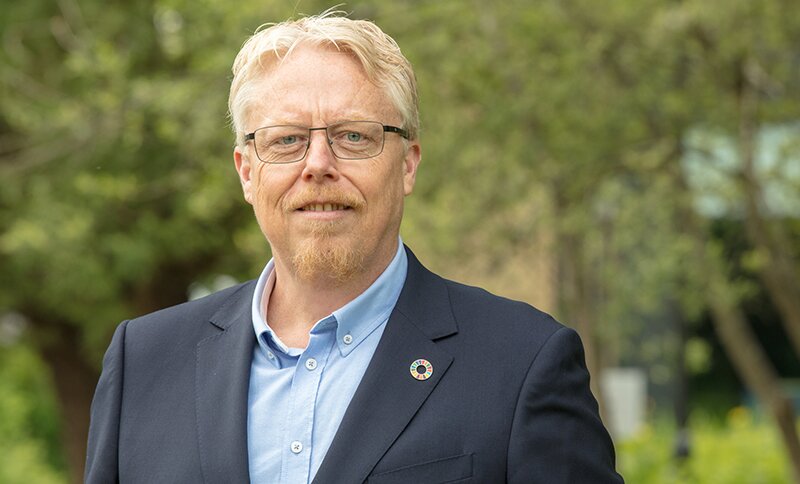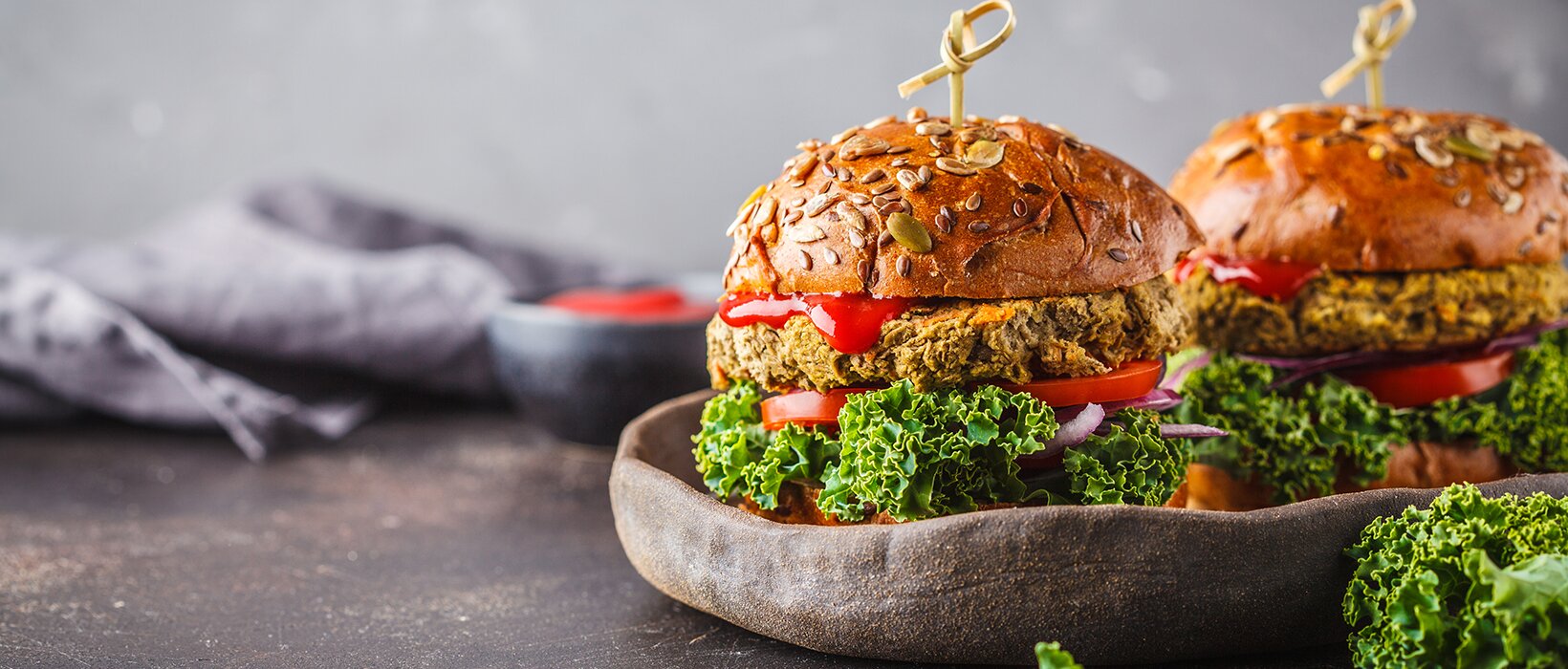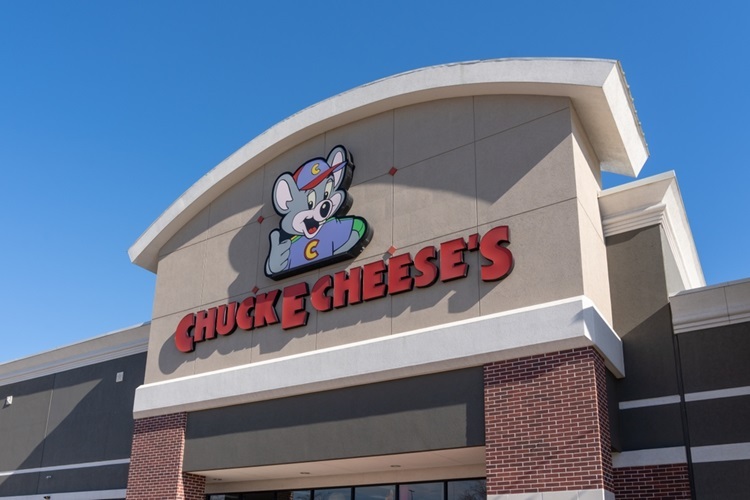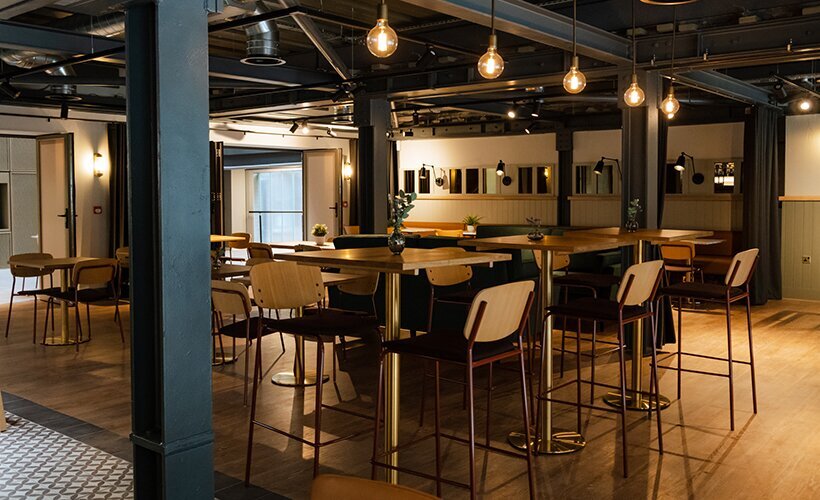Operators on the journey to net zero at The Caterer's Sustainability Summit
Speakers at the The Caterer’s Sustainability Summit, sponsored by Alaska Seafood, found ways to contribute to the journey to net zero, whether through reducing the amount of meat on the menu or taking a fresh look at their supply chain. Kathleen Hall reports
There’s no escaping the existential risk we face when it comes to the climate crisis – something that has become particularly apparent with the United Nations Climate Change Conference (COP26).
Business must take urgent steps to become more sustainable and the hospitality sector will play a central role.
“Directly and indirectly the production and consumption of food is responsible for the majority of global greenhouse gas emissions,” said Juliane Caillouette-Noble, managing director of the Sustainable Restaurant Association, who spoke at the summit.
The figures paint a worrying picture. For example, some 330 million tonnes of meat and 812 million tonnes of dairy produced globally each year account for 60% of farming’s greenhouse gas emissions (GHG) “That’s a whopping 16.5% of all total global emissions,” she said.
However, as Sarah Johnson from marketing agency Lotus – which represents the Alaska Seafood Marketing Institute – pointed out, making sustainable choices can be complicated. “The role that food plays in climate change is obviously very complex and it feels more complex than ever at the moment.”
Dairy substitutes are an illustrative example. “Almond trees consume 130 pints of water in the production of one glass of almond milk. Coconut producers in the Philippines are seeing mass de-forestation and can’t sustain themselves because they’re growing so many coconut trees. And rice produces more greenhouse gas emissions than other plant milk,” she explained. “It’s a bit of a landmine.”
The green menu
Certainly, consumer behaviour seems to be moving in the right direction. Over the past decade meat consumption has dropped 17% in the UK and is expected to decrease further, but for steak restaurant Hawksmoor that isn’t necessarily bad news from a business perspective.
“As a country we are eating less meat,” said Ellie Besley-Gould, head of sustainability at the restaurant group. “So when we do eat it, we should know that it’s good stuff.”
She noted the company works with small farms focused on regenerative agriculture and biodiversity. The priority is using meat that isn’t intensively farmed and is reared through a process that involves removing carbon from the atmosphere through sequestration. “But we can’t walk away from the fact that beef is from a high-emitting animal… so that’s just something we’ve got to figure out.”
Hawksmoor is committed to reducing its carbon footprint and, among a number of other measures, uses carbon offsetting, which costs around 7p per cover. “That essentially means purchasing carbon credits [for] the equivalent amount of carbon that we are emitting,” said Besley-Gould. Having metrics in place also enables it to reduce offsetting costs by cutting emissions, such as switching to green energy, she added.
Mike Hanson, director of sustainable business at Westbury Street Holdings (WSH), the owner of businesses such as Searcys, BaxterStorey and Beungo, said the company had introduced meat reduction across its menus. Along with others in the sector, WSH signed a pledge in June committing to the Business Ambition for 1.5°C (the ambition set forward in the 2015 Paris Agrement) and has put in place emission targets.

“It's not about making people vegan or vegetarian, it’s about less and better,” he said. Hanson agreed that when serving a high-emitting meat such as beef it is essential to ensure it is bred in the UK and has been fed on grass as opposed to grain or soy.
The key is to change the perception of plant-based food. Hanson said: “Plant-based used to be in the vegetarian section on your menu, but actually, it’s not about [having it as a separate category] it’s just about making amazing food.”
This is where behavioural science can play a role, said Ryan Holmes, culinary director of the business and industry catering services arm of Compass Group UK & Ireland. Compass has also set a target of achieving net zero by 2030 and as part of that drive, the catering giant has introduced a sustainability ranking on its menus.
“Before, we used to keep our best practices to ourselves, but increasingly people are happy to share their information”
“[Consumers] are coming in to eat. It doesn’t need to be chapter and verse. What we need to do is nudge them into making those decisions,” he said. Compass has worked with researchers at the University of Oxford’s Livestock, Environment and People (LEAP) group to develop and introduce labels on menus grading greenhouse gas footprint, water impact and biodiversity impact.
“We offer a simple A-E listing, with A being the most environmentally friendly, E not quite so much. It’s colour-coded too, so A is green.” The company has also moved away from specifically labelling dishes vegan or vegetarian. “It’s just about having good, tasty food, whether it has meat in it or not.”
Chef Chantelle Nicholson agreed that the key is to take a plant-based approach, but said it’s also important to take a holistic analysis to what goes on the menu.
“[It’s about] broadening the sense of what’s around you and understanding where it comes from and actually putting it on your menu for a reason rather than just because it’s something that takes your fancy,” she said. For example, while avocados can be a healthy, vegan option, the way they are produced is having a devastating impact on the environment. “There are some things that just I won’t put on the menu for that reason,” she added.
Johnson made a similar point when she noted how something is farmed is just as important as where it comes from. “[People may] think that this is a slight contradiction in terms of how can seafood from Alaska, which is over 4,000 miles away, be better for me, or better for the planet, than locally-sourced seafood?”
But she pointed out that unlike in many other jurisdictions, sustainability was written into the Alaskan constitution in 1959. “So in Alaska sustainability is the law and harvests are maintained to sustain generations of fishing families.”

Working together
Around 65% of all emissions in hospitality businesses come from activities not owned or controlled by the business itself, known as scope three emissions, said Caillouette-Noble. So clearly this is an issue that can only be tackled if the sector works together.
Iqbal Wahhab founder of the Cinnamon Club and Roast restaurants, said the sector is already changing its approach to be more collaborative. “The word ‘sharing’ has become much more common parlance for restaurants. Before, we used to keep our best practices to ourselves, but increasingly people are happy to share their information.”
He believes there is an increasing appetite on the part of customers “to interrogate us on our supply chains.” He said: “Customers come into restaurants thinking ‘how much of what they say are they actually doing?’ And you cannot just make claims and hope people believe you [without having] to prove them.”
Sue Williams is general manager of Whatley Manor in Malmesbury, Wiltshire, and winner of the 2021 Sustainable Business Award Catey. Williams said that working with suppliers was a team effort, and in September the hotel held a supplier sustainability workshop to ensure everyone was on the same page.
“We’ve come to understand that 37% of our carbon sits in our supply chain,” she said. “So this is going to be the hard yards of anybody’s journey to net zero. We have to work hard together. I’m finding so far about 98% of our people are saying ‘it’s difficult, but yes, we want to get on this journey too’.”
“Yes, it’s a massive challenge. Yes, it’s a massive journey but let’s get it under way and do all we possibly can”
WSH’s Hanson noted the majority of the company’s supply chain are SMEs, so it’s not simply a case of telling suppliers to “shape up or ship out,” he said. “We have a responsibility not only to collaborate with those suppliers but to help them on the way because they may not have the resources, knowledge, skills or the opportunity to develop [more sustainable practices].” As such, WSH is actively encouraging suppliers to look at areas such as biodiversity, re-wilding and regenerative farming.
There’s also scope for mutual learning, said Hawksmoor’s Besley-Gould, with some suppliers ahead of operators on certain issues. For example, she said its waste management company was able to help the group introduce food waste separation at two sites. “A management person came in and worked out our waste area and made it possible to make those changes.”
**Setting targets **
For some, the idea of setting long-term goals could be seen as a convenient way of putting meaningful action on hold. But Besley-Gould pointed out the bigger target of net zero would be impossible without making changes now.
“So we’ll set 2030 targets, but we’ve got milestones along the way, so 2023 to 2025 and 2027 are going to be really critical for us,” she said. “It has to be this constantly changing thing; it’s not about kicking the can down the road but adjusting as you go,” WSH’s Hanson concurred. “The targets are almost not the point, it’s action now,” he said. “There needs to be some timeframe because there’s a lot to do, but we’ve got to start today.
James Golding, chef-director at the Pig group of hotels, pointed out that the next generation of staff want to see change now. “Generation Z are more interested in the planet and where food comes from,” he said. “I think in the past chefs were very happy not to [visit producers] unless they were forced out on a day trip, whereas now quite a lot of young people are going out to meet the people that are producing the food they're cooking.”
Whatley Manor’s Williams agreed: “It’s a great subject to drive a young team by, it brings fresh thinking and creativity. Yes, it’s a massive challenge. Yes, it’s a massive journey but let’s get it under way and do all we possibly can.”
And she had a stark warning for anyone who thinks otherwise. “If we don’t… the planet will take care of it for us and become such an inhospitable place mankind will be gone.”
Five steps to net zero

“The road to a net zero economy runs directly through the hospitality sector,” said Juliane Caillouette-Noble, managing director of the Sustainable Restaurant Association. “There’s no such thing as a net zero economy without our sector coming on board,” she said. Here she outlines five steps to becoming a credible net zero business.
Calculate “This is a really important first step, especially for foodservice businesses,” she said. It includes looking at the emissions you are both directly responsible for, such as energy use and travel, and those outside the business, such as those embedded in the supply chain.
Mitigate This involves setting science-based targets in line with the 1.5°C warming cap. “Shifting to green energy is one of the most essential first steps for hospitality businesses when it comes to mitigating their emissions. Another, perhaps controversial but important step is moving away from gas burners to induction.” A step that she noted could be “controversial” for chefs who swear by gas.
Compensate “It’s important to realise that hospitality will always be an emitting business because we fundamentally serve food that is taken from the ground and is consumed by humans. So there is no negating that without balancing it through compensating that carbon somewhere else,” she said. “You won’t run your way to a zero emissions business simply by eliminating emissions entirely.”
Communicate “To achieve a net zero economy by 2050, the sector must celebrate success, share our stories and inspire more businesses to do so.” That means sharing details of climate plans and action transparently as well as advocating for widespread adoption of paths to net zero.
Validate Businesses must be able to demonstrate they have complied with the requirements to achieve net zero certification. “Use accreditation schemes and other experts to really scrutinise and validate the work you are doing as a business.”
Sponsor Alaska Seafood
As world-leader in the sustainable harvesting of seafood, fishing practices in Alaska protect the future of fish stocks, local communities, and entire ecosystems.
Sustainable fishing became law in Alaska in 1959 and Alaska’s fishing families hand down harvesting methods from generation to generation in the understanding that protecting the valuable seafood ecosystem will sustain their families for centuries to come.
For more information on seafood from Alaska, sustainability practices and sourcing, email asmi@wearelotus.co.uk, call 020 7953 7470 or visit www.wildalaskaseafood.co.uk
















